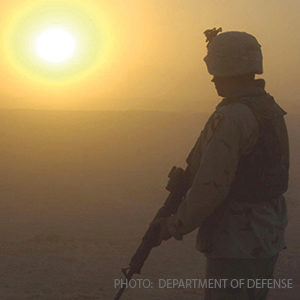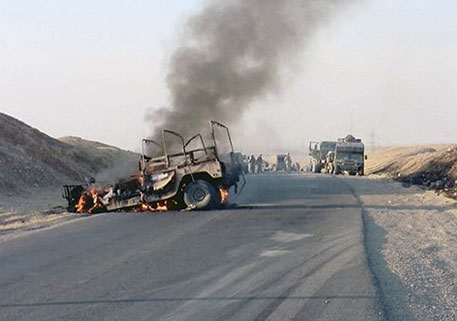 Veterans are already at higher risk for melanoma, the deadliest and most aggressive form of skin cancer, but new research finds that they’re more likely to be initially diagnosed with advanced stages of the disease compared with civilians.
Veterans are already at higher risk for melanoma, the deadliest and most aggressive form of skin cancer, but new research finds that they’re more likely to be initially diagnosed with advanced stages of the disease compared with civilians.
“I know from my clinical experience that we see a lot of advanced skin cancer cases in our patients,” said Dr. Rebecca Hartman, associate chief of dermatology with the VA Boston Healthcare System, one of the study’s authors. “We were really interested in looking at the burden of melanoma specifically within the VA to see what’s unique about melanoma and veterans compared to the general population.”
The study found veterans were 18% more likely to present with stage 3 melanoma and 13% more likely to receive an initial diagnosis of stage 4, when the cancer has spread to other parts of the body.
According to the American Cancer Society, melanoma is less common than other types of skin cancer but is more likely to grow and spread.
The study did not look at incident rates among veterans compared with civilians, but Hartman said various reasons might lead to higher skin cancer rates.
“Some of the exposure veterans endure increase their risk,” she said. “Many of our conflicts take place in sunny places, and many veterans may also have a career that involves sun exposure outside of the military.”
Demographics may lead to an increased risk of melanoma. Hartman said that fair skin and advanced age are factors when diagnosing the disease. She also said it’s more commonly found in men than women.
A 2021 Air Force study found that pilots and weapons systems officers working in and around fighter jets were 24% more likely to be diagnosed with melanoma than Air Force officers who did not fly fighter aircraft.
In many cases, melanoma is treatable when detected early. The five-year survival rate, according to the American Cancer Society, is 99% when the cancer has not spread. Those numbers drop when it extends nearby or to the lymph nodes (65%) or has reached other body parts (25%).
But it’s never too late to protect your skin from the sun’s harmful ultraviolet rays, said Hartman. Medical providers, including VA physicians, can prescribe sunscreen as part of a veteran’s care. Avoiding direct sunlight in the middle of the day is another good practice.
And keeping an eye on your skin could be lifesaving. Hartman said that veterans, their family members and health care providers should look for the “ugly duckling” in their skin.
“It’s something that stands out that doesn’t look like the rest of your spots,” she said. “If you have a lot of spots that look similar, that’s usually a reassuring sign. But look for anything changing size, shape or color.”






